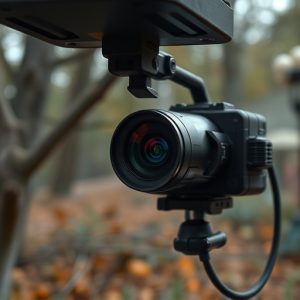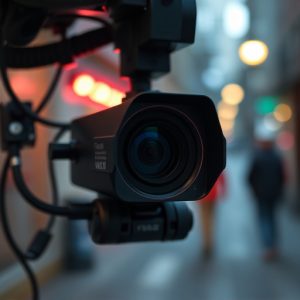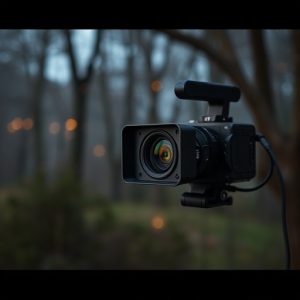Hidden Cameras in Rentals: Legal, Ethical, and Business Considerations
In today’s digital era, landlords and business owners alike are increasingly turning to secret surve…….
In today’s digital era, landlords and business owners alike are increasingly turning to secret surveillance spots in rental properties as a means of enhancing security. This practice, however, raises crucial legal implications and ethical concerns, particularly regarding tenant privacy rights. This article delves into the world of hidden cameras, exploring the legality and ethical boundaries surrounding their use. We also present various types of convincing decoy cameras designed for business use, discuss best practices for implementing surveillance while respecting privacy, and provide insights on maintaining a delicate balance between security and tenant trust.
- Understanding Legal Implications and Ethical Concerns
- – Discussing the legality of hidden cameras in rental properties
- – Exploring ethical boundaries and tenant rights
Understanding Legal Implications and Ethical Concerns
Surveillance in rental properties, while often motivated by legitimate security concerns, raises a complex web of legal and ethical issues. Landlords must navigate the fine line between protecting their investments and respecting tenant privacy. In many jurisdictions, placing cameras in common areas or even inside units requires explicit consent from tenants, and unauthorized surveillance can lead to severe legal repercussions.
One controversial method that has gained attention is the use of decoy cameras, particularly for business purposes. These are convincingly designed to mimic real security devices but serve as a deterrent rather than an active monitoring tool. While their effectiveness in preventing crime remains debatable, their potential to infringe on tenant privacy underscores the need for transparency and clear communication between landlords and tenants.
– Discussing the legality of hidden cameras in rental properties
In many jurisdictions, the installation of hidden cameras in rental properties is a complex legal matter. While some landlords may be tempted to use decoy cameras as a convincing strategy for business purposes, such actions often tread on privacy rights protected by law. Tenants expect their homes to be private spaces, and any surveillance system must adhere to strict regulations to ensure this trust isn’t violated.
Decoy cameras, designed to look like everyday objects, are a legal gray area. While they may seem like an innocuous tool for business owners to monitor properties, their use can raise concerns among tenants and privacy advocates. It’s crucial for landlords to consider alternative methods that balance security needs with tenant rights, such as visible surveillance cameras or professional security services, to avoid potential legal issues and maintain open communication with their tenants.
– Exploring ethical boundaries and tenant rights
In the realm of rental properties, the installation of secret surveillance spots has become a contentious issue, raising questions about ethical boundaries and tenant rights. While landlords argue that decoy cameras enhance security and deter criminal activities, tenants view them as an invasion of privacy. The debate intensifies when considering convincing decoy cameras for business purposes, where their subtle design aims to mimic everyday objects while capturing footage. This practice blurs the line between public and private spaces, prompting discussions on consent and the extent to which landlords can monitor their tenants’ activities.
Tenants’ rights advocates argue that secret surveillance violates the trust between landlord and tenant, fostering an atmosphere of distrust and paranoia. They advocate for open communication and transparency regarding security measures. On the other hand, property owners maintain that these cameras serve as necessary tools for maintaining a safe living environment, especially in areas with high crime rates. Balancing the need for security with individual privacy remains a delicate task, one that requires careful consideration of legal frameworks and ethical guidelines to ensure fair treatment for all parties involved.
While decoy cameras, marketed as convincing solutions for business security, may seem like a quick fix for landlords, deploying hidden surveillance in rental properties raises significant legal and ethical red flags. The use of such devices without clear consent from tenants breaches privacy rights and can create a hostile living environment. Balancing security needs with tenant dignity requires open communication, transparent practices, and adherence to legal boundaries, ensuring that any surveillance measures are proportionate, necessary, and respect individual freedoms.


